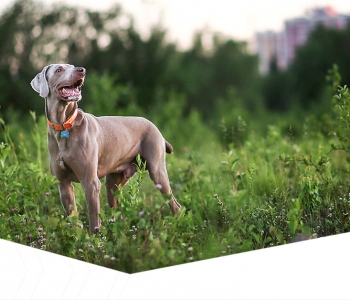
Taking DAILY CARE of your dog’s SENSITIVE SKIN
As the largest organ of the body your dog’s skin offers the first line of defence against infection and the elements. With its high nutrient requirement it often shows signs of strain – acting as a mirror, reflecting a dog’s inner health. In the showing and breeding world your dogs need to look as healthy on the outside as they do on the inside.
Sometimes this is easy – breed well, look after your dog’s needs and feed a good quality diet and everything will be fine, but sometimes the skin can ‘misbehave’ and it’s more common than you might think. In fact a significant 31% of dogs will experience some kind of skin sensitivity during their life3 so it is likely that you or someone you know will have a dog that itches and scratches, even if it is occasionally. Perhaps the dog’s coat looks a bit dull and isn’t as healthy looking as it used to be or perhaps you’re worried that your dog might be allergic to something in his food, particularly if you breed/show certain breeds that have sensitive skin; e.g. Staffordshire Bull Terrier, Cocker Spaniel or West Highland White Terrier.
As with us humans, skin problems in dogs can develop at any time. An allergy happens when your dog’s immune system reacts to what are usually harmless substances (allergens); e.g. plants / flea saliva / certain ingredients in foods. Exposure to the allergen, usually on multiple occasions, sensitises the immune system, and a subsequent exposure to the same or related allergen causes an over-reaction (typically skin problems but the gut and respiratory systems can also be involved). Normally the immune response protects the dog against infection and disease, but with allergies, the immune response can actually be harmful to the body. The most common skin symptoms to look out for are; itchy, red, moist or scabbed skin; itchy ears, backs and bases of tails, paws and eyes and increased scratching and licking.
Allergies can occur at any time of the year but it is quite common to see a peak in allergic symptoms during seasonal changes such as Spring – when new grasses, leaves and flowers are coming out and Autumn – when these grasses are seeding and leaves are shedding.
There are many different allergens with some of the more common ones being:
- Flea saliva (it only takes one flea to trigger an allergic reaction, so it’s not always easy to spot the odd flea. If in doubt, treat for fleas).
- Various grasses, plants, pollens, dust and house dust mites and even human dander.
Food allergies do occur but are not the most common causes of skin disease in dogs.
It’s important to note that pets can be allergic to more than one thing (e.g. fleas, pollen/grasses) and often allergies progress with age to include multiple allergens.
The best way to treat an allergy is to avoid the offending allergen but this can be lengthy and difficult to fully achieve. The good news is that with the help of your veterinarian and a clear systematic plan, most cases can be managed long term with a combination of allergen avoidance, special diets, shampoos and little medication.
If your dog has sensitive skin/allergies try exclusively feeding Eukanuba Daily Care Sensitive Skin for a minimum of 8-12 weeks. It is vital that nothing else is fed during this time. No treats, no table snacks, flavoured chews/medications. This diet contains ingredients not known to be the cause of many allergies and these will ideally be ingredients your dog has never been exposed to. Omega-3 fatty acids are known to help soothe the skin, again, type and level are important and Eukanuba Daily Care Sensitive skin contains a high level of Omega-3.
1made in a facility that handles wheat
2vs Eukanuba Adult Medium Breed maintenance diet
3Pet Owner Habits & Practice Study (Italy, 2009),









